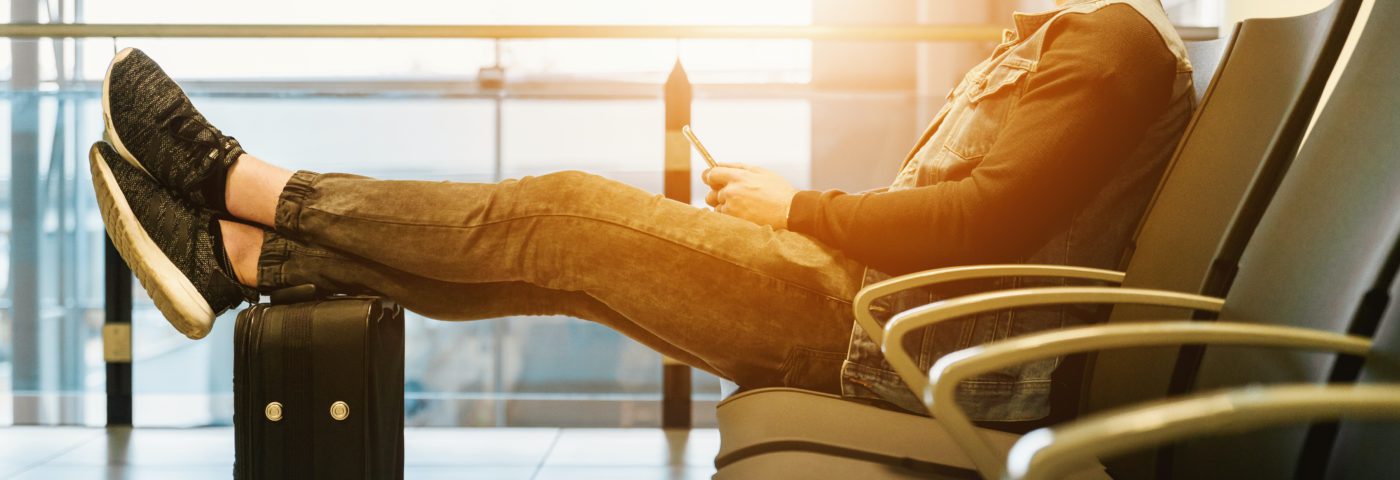By Paulo Salvador, Content Advisor and speaker for Travel Forward Conference
Photo by JESHOOTS.COM on Unsplash
Pierre Hassner was philosopher and professor at SciencesPo, Paris. He evokes the term “complexity in motion” to describe the increasingly mutant times in which we are obliged to live and take decisions. He describes them as “times in which we lose the long term vision, our actions consisting mostly of reacting to the most recent crisis and forgetting about the ones that are arising in the horizon”.
This is an extract from an article I wrote two years ago about challenges the travel industry was facing over exponential acceleration of digital capabilities.
Before COVID-19 sprung, each of us was accessing more technological tools and information than the CEOs of the world’s biggest companies did just two decades ago. We were so overloaded with information that our ability for scenario planning was more and more limited to the short term.
The digital century was already there: expectations were changing fast, safety and security were priorities, and travel technology was enabling new business models for our industry.
COVID-19 is just another challenge on the horizon of travel (perhaps huger than previous challenges) and there is no doubt that technology will help to accelerate the recovery faster than previous times.
Hence, the trends post-COVID-19 won’t be diverted from those we were already experiencing in this era of ‘complexity in motion’. We don´t need to build science fiction scenarios to imagine the future. For the travel industry, the future has already been approaching for a while. It’s just that some trends will be accelerated:
Trend acceleration #1: The end of friction in travel
Our industry is extremely fragmented and consequently travel booking can be extremely laborious. A simple leisure weekend in London obliges the traveller to navigate and purchase across 30 different websites to book transportation, accommodation and activities. API capabilities have been speeding up the process of integrating travel journey planning into a simple and frictionless experience, allowing us to reach the next frontier of the travel experience.
Trend acceleration #2: Interoperability
We all know that mobile applications’ tracking technologies will increase confidence in crossing borders. So far, governments in Europe and elsewhere have worked on systems that are fundamentally incompatible with each other. Without travel technology, it will be very difficult to open frontiers and destinations to the degree that we want. But without interoperability in tracking applications, we will not be able to re-establish normal conditions for travel.
Trend acceleration #3: Experience re-invention
Social distancing will knock down ‘high-touch’, the classical approach of services. How to manage this paradox? Travel is a people business! Technology – inspired by marketplace dynamics and retail giants such as Amazon and Apple – will cover this gap with other approaches based not in ‘high touch’, but in ‘high personalization’. Digital engagement and travel preferences via mobile devices and AI will grant control to travellers, reinventing ‘self-service’ experiences: Pre- and post-check-in for hotels, security checks for airlines. NDC in the airlines industry, attribute-selling model (ABS) for hotels and virtual tourism is closer than we realize. In this last case, hotels, airlines and even airports were already empowering virtualized experiences, such as VRoom Service, event-planning solutions, wedding parties, virtual meetings, and airport lounges as digital meeting hubs. Virtual experiences will become as good as, if not better than, the real thing.
Trend acceleration #4: The creation of ‘Unholy Alliances’
There is no doubt the travel industry will continue to experience M&A opportunities. There is yet a lot of money available. But at this time innovation and economy of scale will not be the only major objectives. The urge to accelerate costumer value, or to quickly penetrate new business opportunities for growth, will force travel companies to think externally to their existing strategy and value chain. Here are some real, or probable, examples: Accor, a global leader in hospitality, and AXA, a global leader in insurance; Airbnb, a global leader in vacation rentals and Amazon; Oracle and Sabre; Google and everybody (Google’s dominance will continue to be unambiguous… )
From a historical perspective, five years from now, we will look back on this period and simply conclude that travel technology was already ushering the future of travel. COVID-19 just accelerated this process.
Paulo Salvador collaborates as Content Advisor and speaker for Travel Forward Conference in London, São Paulo and Dubai. He is a former C-Level executive in different travel companies in Europe and Latin America, expert and Senior Lecturer in Innovation and Technology Distribution in France, Germany and Brazil and founder and managing director of boutique consulting Inn&Out Performance, with offices in Paris and São Paulo.
You may also be interested in…
- The Emergence Of Niche Travel Post COVID-19
- Data-driven Decisions In Times Of Uncertainty
- Millennials, Travel Tech and Post-Pandemic Travel

